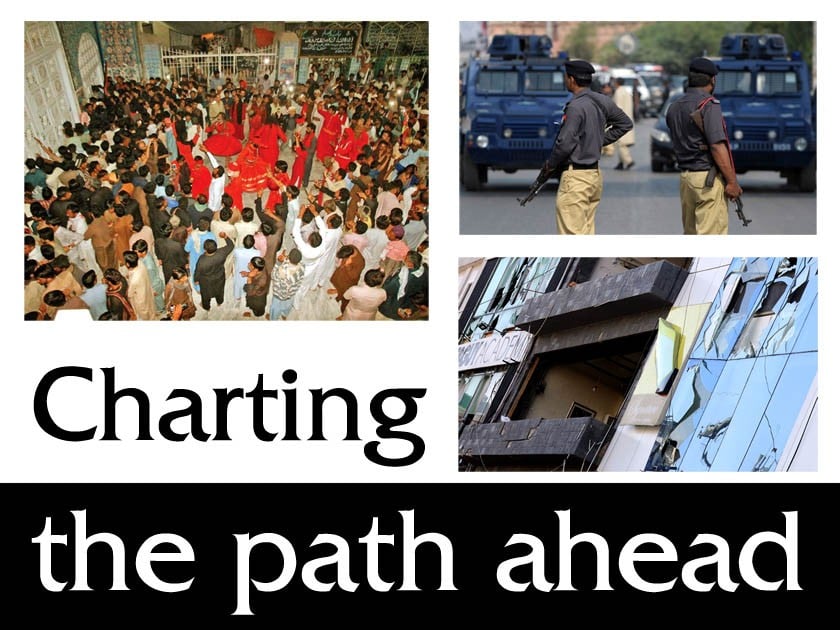
Taking a look at what needs to be done to defeat terrorism and correct the faulty ideological moorings of the state of Pakistan

A week or two of deadly attacks in all corners of the country and the decision makers are back to square one. There have been knee-jerk reactions -- of arrests and elimination of a hundred ‘terrorists’ in just one day -- and announcement of yet another full-fledged military operation.
There wasn’t much the state of Pakistan could add to the fairly comprehensive National Action Plan except this. One curious addition is the term ‘sahoolatkar’ or facilitators of terrorism which may have been a consequence of the wisdom gained through implementing the NAP in the last two years. The fresh combing operations, we are told, will take care of all these facilitators too.
Not so curiously though, the ‘facilitator’ bit might come in handy to revive the institution of military courts, because you can’t obviously deter the suicide bomber with threats of death, but you can scare the facilitators. So here is a case for military courts for another three years.
There is no obvious answer to the question of the timing of this recent wave of attacks except, as I.A. Rehman suggests in his piece, the militants’ belying and challenging "the security forces’ claims of victory over them". They have shown their invincibility and capability "to strike wherever they wish".
It is time for the state to take stock of its own vulnerabilities and its inability to provide security of life to its citizens. From the look of things, it seems geared to chart on the old course, trying to match the enemy’s strength with more force. But this hasn’t helped in the past and the events of the last two weeks only confirm it.
Read also: Charting the path ahead
I.A.Rehman, in his overview for our Special Report, takes a comprehensive view of what all needs to be done but the essential point he makes is about the faulty ideological moorings of the state of Pakistan. The foundations of the country need to be reimagined, beginning with the separation of religion from the state. Once that is done, democracy that empowers people and respects rule of law must be restored to this hapless country, bringing the military under civilian command.
These may seem like long-term measures but the solution to terrorism, we feel, lies away from military operations and military courts. It lies in a foreign policy carved by the elected representatives of the people.
What the state’s new narrative, no matter where it comes from, fails to mention is opening up the possibility of dialogue and negotiations as one of the responses to terrorism.
The anger and helplessness after each terror attack is translated into more potent use of force against the perpetrators. But the dictum stays true and violence begets more violence and the cycle continues.
If, as news reports suggest, there is a plan by the state to mainstream the JuD cadre by deradicalising them, there should be a plan to engage with the ‘bad’ Taliban too, through means other than force alone.